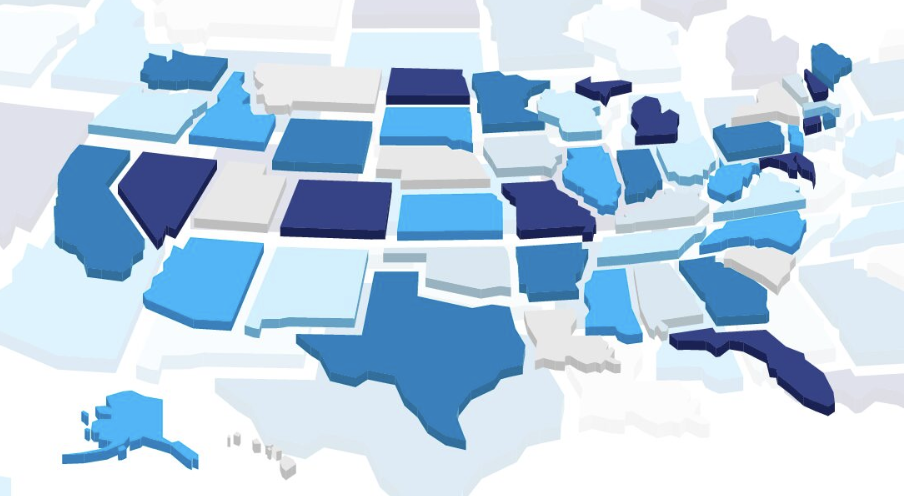Future of Privacy Forum to Honor Top Scholarship at Annual Privacy Papers for Policymakers Event
Washington D.C. — (January 26th, 2026) — Today, the Future of Privacy Forum (FPF) — a global non-profit that advances principled and pragmatic data protection, AI, and digital governance practices — announced the winners of its 16th annual Privacy Papers for Policymakers (PPPM) Awards. The PPPM Awards recognize leading research and analytical scholarship in privacy […]
The RAISE Act vs. SB 53: A Tale of Two Frontier AI Laws
What the enactment of New York’s RAISE Act reveals compared to California’s SB 53, the nation’s first frontier AI law On December 19, New York Governor Hochul (D) signed the Responsible AI Safety and Education (RAISE) Act, ending months of uncertainty after the bill passed the legislature in June and making New York the second […]
FPF Year in Review 2025
Co-authored by FPF Communications Intern Celeste Valentino with contributions from FPF Global Communications Manager Joana Bala This year, FPF continued to broaden its footprint across priority areas of data governance, further expanding activities across a range of cross-sector topics, including AI, Youth, Conflict of Laws, AgeTech (seniors), and Cyber-Security. We have engaged extensively at the local […]
Five Big Questions (and Zero Predictions) for the U.S. Privacy and AI Landscape in 2026
Introduction For better or worse, the U.S. is heading into 2026 under a familiar backdrop: no comprehensive federal privacy law, plenty of federal rumblings, and state legislators showing no signs of slowing down. What has changed is just how intertwined privacy, youth, and AI policy debates have become, whether the issue is sensitive data, data-driven […]
FPF Releases Updated Report on the State Comprehensive Privacy Law Landscape
The state privacy landscape continues to evolve year-to-year. Although no new comprehensive privacy laws were enacted in 2025, nine states amended their existing laws and regulators increased enforcement activity, providing further clarity (and new questions) about the meaning of the law. Today FPF is releasing its second annual report on the state comprehensive privacy law […]
What’s New in COPPA 2.0? A Summary of the Proposed Changes
On November 25th, U.S. House Energy and Commerce introduced a comprehensive bill package to advance child online privacy and safety, which included its own version of the Children and Teens’ Online Privacy Protection Act (“COPPA 2.0”) to modernize COPPA. First enacted in 1998, the Children’s Online Privacy Protection Act (COPPA) is a federal law that […]
FPF Releases Issue Brief on New CCPA Regulations for Automated Decisionmaking Technology, Risk Assessments, and Cybersecurity Audits
Since the California Consumer Privacy Act (CCPA) was enacted in 2018, business obligations under the law have continued to evolve due to several rounds of rulemaking by both the Attorney General and the California Privacy Protection Agency (CPPA). The latest regulations from the CPPA are some of the most significant yet. Starting January 1, 2026, […]
The State of State AI: Legislative Approaches to AI in 2025
State lawmakers accelerated their focus on AI regulation in 2025, proposing a vast array of new regulatory models. From chatbots and frontier models to healthcare, liability, and sandboxes, legislators examined nearly every aspect of AI as they sought to address its impact on their constituents. To help stakeholders understand this rapidly evolving environment, the Future […]
Call for Nominations: 16th Annual Privacy Papers for Policymakers Awards
The 16th Privacy Papers for Policymakers call for submissions is now open until October 30, 2025. FPF’s Privacy Papers for Policymakers Award recognizes leading privacy research and analytical scholarship relevant to policymakers in the U.S. and internationally. The award highlights important work that analyzes current and emerging privacy issues and proposes achievable short-term solutions or […]
FPF Submits Comments to Inform Colorado Minor Privacy Protections Rulemaking Process
On September 10th, FPF provided comments regarding draft regulations for implementing the heightened minor protections within the Colorado Privacy Act (“CPA”). Passed in 2021, the CPA, a Washington Privacy Act style-framework, provides comprehensive privacy protections to consumers in Colorado that are enforced by the state Attorney General’s office, which also has rulemaking authority. In 2024, […]









